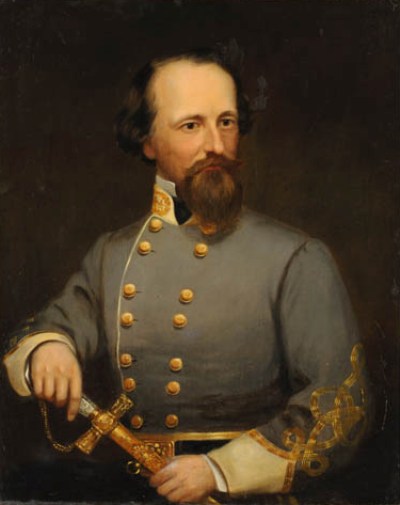James Johnston Pettigrew
(Tyrrell County)
Featured Character – 1863

James
J. Pettigrew
Courtesy of the North Carolina Museum
of History
James Johnston Pettigrew was born on July 4, 1828, at
Bonarva Plantation on Lake
Phelps.
His father operated several large plantations in neighboring Tyrrell and Washington
counties. At age 14, he entered the University
of North Carolina,
where he graduated in 1847 with the highest honors. At the commencement were
President James Polk and the Secretary of the Navy, who offered him a
professorship at the U.S. Naval Observatory. After six months there, Pettigrew
began to study law in Charleston,
only to leave to study in Europe
that same year. When he returned in 1852, Pettigrew continued to practice law
in Charleston
and later becoming an officer in South
Carolina’s militia Pettigrew participated in the
bombardment of Fort
Sumter
in April 1861.
Unable to receive a commission in South Carolina’s
forces, Pettigrew took an appointment as colonel of the 22nd North
Carolina Infantry. Despite Pettigrew having no real combat experience,
Jefferson Davis made him a brigadier-general just before the Peninsula
Campaign. Although he claimed to live on “private’s fare,” Pettigrew had
a personal servant. Severely wounded at the Battle of Seven Pines,
Virginia, Union forces took Pettigrew prisoner. After his exchange,
Pettigrew became a brigade commander. During the Battle of Gettysburg,
Pettigrew’s Brigade took part in George Pickett’s famous charge of the Union
position on July 3, 1863. Wounded in the hand, Pettigrew supervised the
Confederate retreat from Pennsylvania.
At Falling Waters, West
Virginia, Union cavalry
caught up with the Confederate rear guard. Shot in the stomach, Pettigrew
died three days later on July 17, 1863. Buried in Raleigh
after an official day of mourning, his family eventually moved Pettigrew’s body
to the family cemetery at Bonarva.